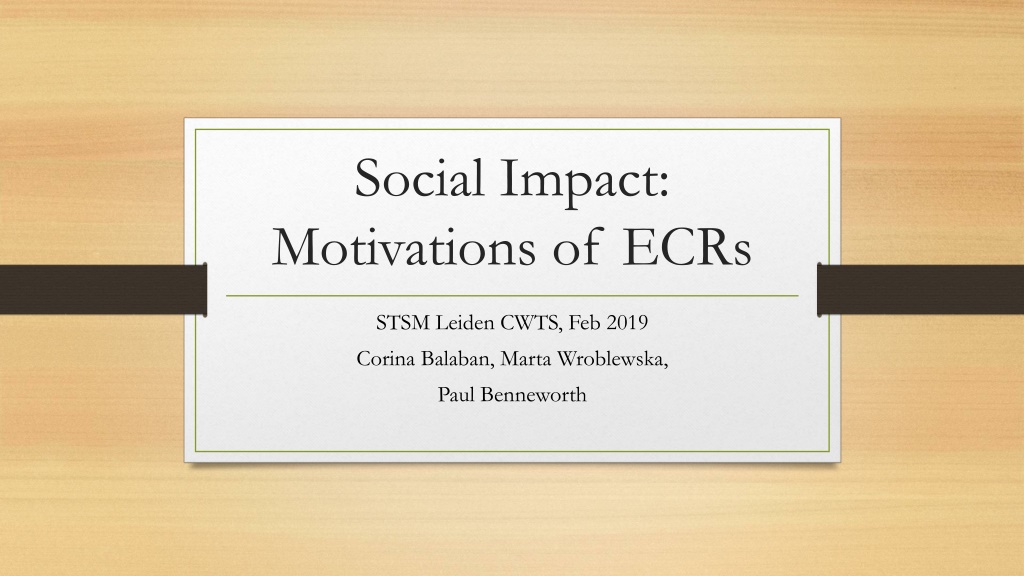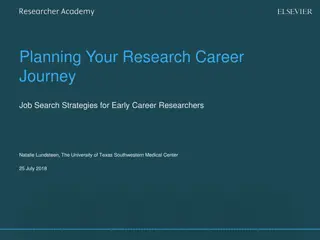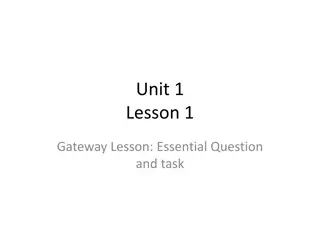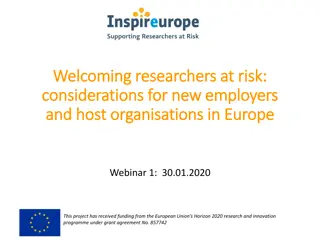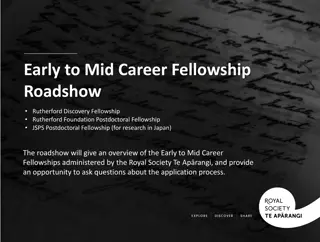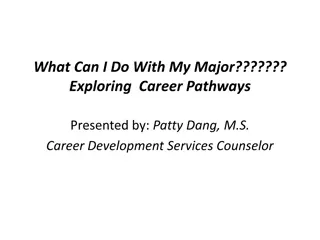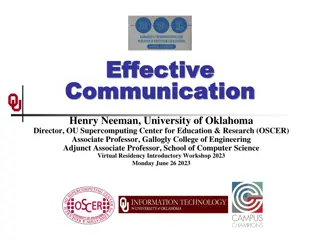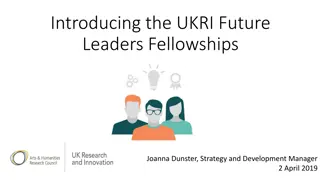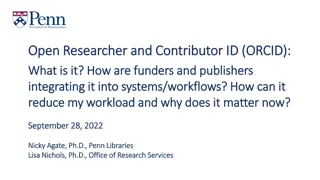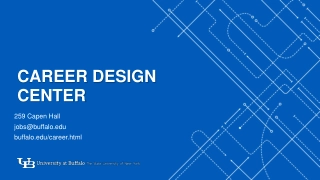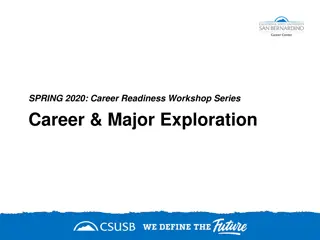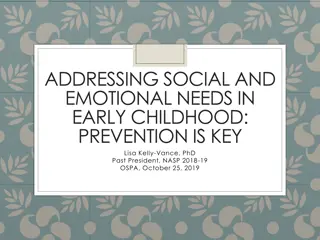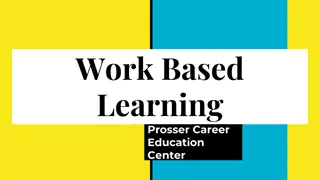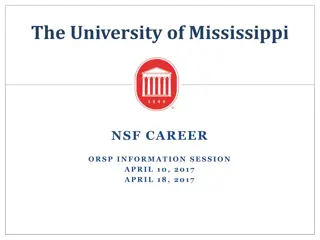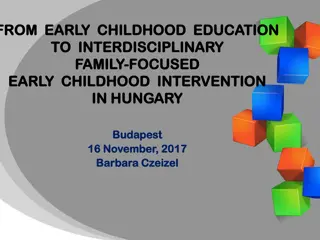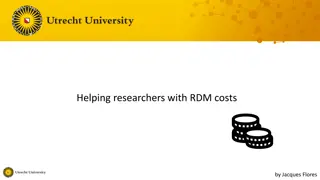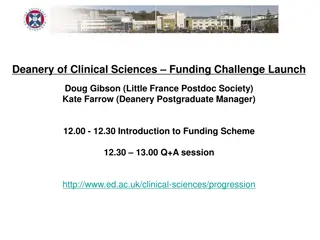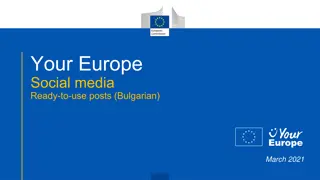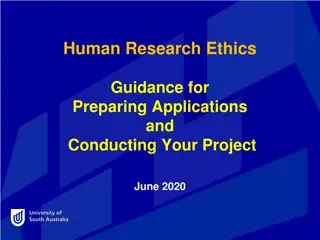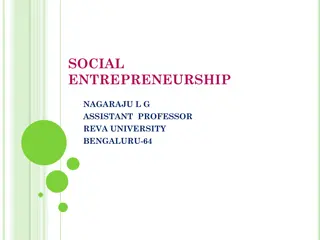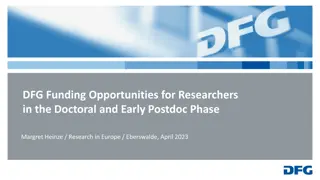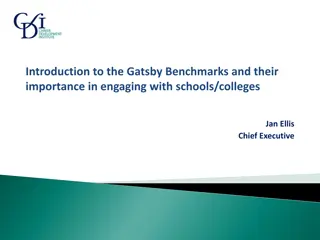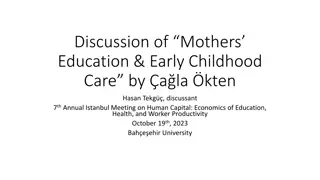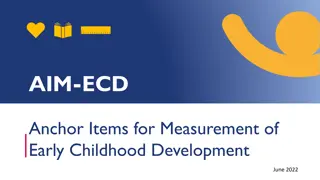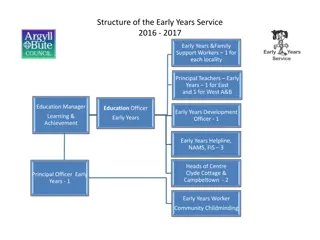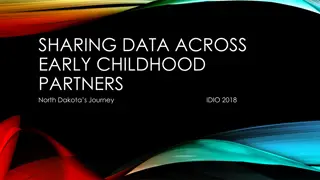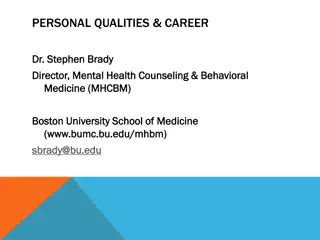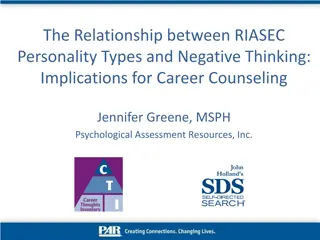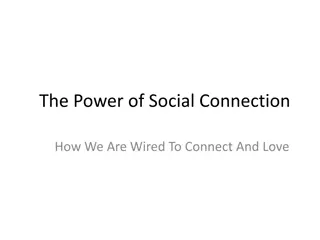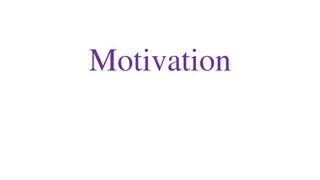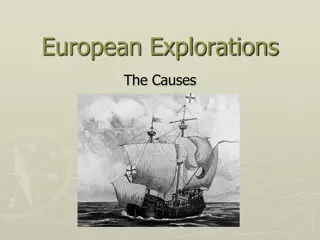Social Impact and Motivations of Early Career Researchers in Europe
Exploring the motivations of Early Career Researchers (ECRs) in Europe regarding impactful research, this study delves into the importance of social impact, the challenges faced, such as academic priorities over societal impact, and specific issues affecting ECRs like short-term contracts and frequent relocations. It emphasizes the need for researchers to give back to society, sustain democracy, and empower marginalized groups, while also highlighting the obstacles and tensions encountered in achieving societal impact in academia.
Uploaded on Sep 27, 2024 | 0 Views
Download Presentation

Please find below an Image/Link to download the presentation.
The content on the website is provided AS IS for your information and personal use only. It may not be sold, licensed, or shared on other websites without obtaining consent from the author. Download presentation by click this link. If you encounter any issues during the download, it is possible that the publisher has removed the file from their server.
E N D
Presentation Transcript
Social Impact: Motivations of ECRs STSM Leiden CWTS, Feb 2019 Corina Balaban, Marta Wroblewska, Paul Benneworth
Acknowledgements The European Network on Research Evaluation of the Social Sciences and Humanities (CA15137) COST (European Cooperation in Science and Technology) Participants in ENRESSH data gathering exercises & Policy Roundtable (Croatia, 2017) Thanks to Prof. Sarah de Rijcke, CWTS, for hosting STSM
Motivations of Early Career Researchers to engage in impactful research One of the themes in the CARES project 100 questionnaires from ECRs in Europe STSM at the CWTS used to analyse all the open answers of the completed questionnaires, looking for anything related to motivation and/ or identity of ECRs Preliminary findings: overview of sub-themes, issues specific to ECRs, first attempt at making sense of the data
Why is social impact important? Why are you motivated? It is the public duty/ moral responsibility of publicly funded researchers to give something back to their societies (tax payers money)/ social legitimation/ accountability It is important to sustain democracy: inform public debate, create awareness/ understanding of certain issues, counter fake news Make a positive change, improve people s lives; societal wellbeing Empower marginalised groups (gender equality, ethnic groups; social inclusion) Research is integral part of society and society is integral part of research. Opportunity to reflect on own practice (integrity)
De-motivators/ Tensions Academic publications/ promotion criteria prioritised over societal impact: to advance on the academic ladder one needs to publish in academic journals: this takes priority over other activities such as dissemination, publishing in popular outlets etc. Contested status of popular research not regarded as highly as academic articles: not as serious and robust (prestige, reputation) Stakeholders not supportive/ responsive to the research Impact as an add-on: no time, no training, no support, no incentives
What is specific to the situation of ECRs? Short-term contracts: not enough time to focus on other things beyond academic publications required to secure next contract Frequent relocation: not enough time to develop local network of stakeholders; limited power to influence public debate (language) Too soon to go public with research results: unsure about their knowledge, not confident enough to own up to their findings Not given enough credibility: just a PhD student in the eyes of decision-makers ; junior status not taken seriously Vulnerable to politics: [if] the research is unfavorable to a dominant political option, then [ ] career progress could be stifled
Identities of ECRs? Link between motivation and identity: you make choices that are consistent with what you believe to be good/ your role in society as an SSH researcher. What does an engaged academic look like? Boundary conditions for stable impactful identities: comfortable with being part of change, comfortable with the responsibility of creating change (knowledge - power) critical of society; comfortable with society being critical of research enjoys doing societal engagement; expects to be recognised for engagement
Evaluation & the Engaged Academic: preliminary thoughts People are motivated by good causes (in society) and demotivated by negative signals (in the science system): how can the social system and the science system be alligned? Conditions for good evaluation: where signals from the social system are aligned with signals from the science system. Identity: the principled (responding to signals from social system, intrinsically motivated) vs. the opportunistic (responding from signals from science system, extrinsically motivated) What would an evaluation system based on positive instrinsic motivation look like? Acnowledgement, signals of value, formative, constructive, done by peers, non comparative, value-added Positive stable engaged identity?
Next steps Extended abstract: 15th April 2019 ENRESSH meeting Valencia, Sept 2019: full draft
Feedback/ comments Thank you!
